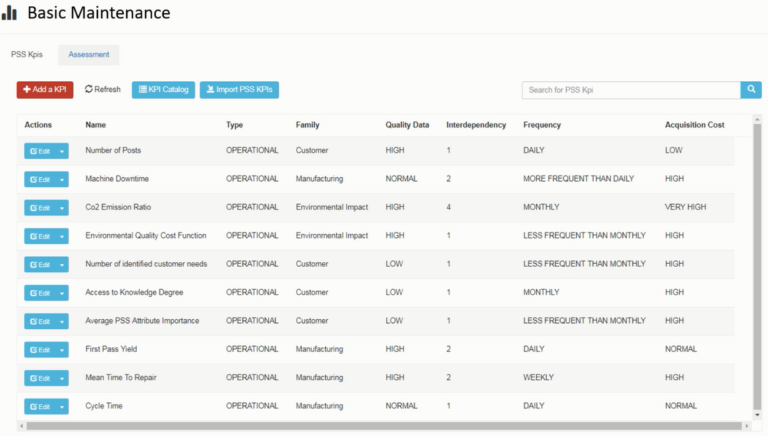Result description
Maintenance is a common offering, as well as a core activity of the manufacturing system lifecycle, since it accounts for as much as 60 to 70% of its total costs. Commonly, in the SMEs, the maintenance activities of customised engineering-to-order (ETO) products highly depend on the experience of engineers and shop-floor experts. Moreover, the estimation of the maintenance time for a new maintenance project, which is among the main offerings in the maintenance, is solely based on the engineer’s experience and knowledge. A methodology for knowledge-based estimation of maintenance time based on Key Performance Indicators (KPI) monitoring has been developed. Data captured through the KPIs monitoring tool can be collected in a knowledge repository, and can be processed using a Case-Based Reasoning (CBR) technique, estimating the required maintenance time. The application contributes to reduction in the number of iterations between customers and the engineering department.
DIVERSITY offers tools to assist in considering feedback from stakeholders in the PSS design. The use of the DIVERSITY solution enabled to exploit the feedback from business customers and shop-floor operations (over wiki), involving engineers using the Diversity platform to have new services evaluated and current ones improved. In addition it provided access to the DIVERSITY repository to exploit historical data to calculate various KPIs. The benefits expected include stronger and long-term relationships with customers, informed decision making – both for the operational and business strategy level, and finally, standardization of the procedures associated to PSS development.
Addressing target audiences and expressing needs
- Collaboration
- Fellowship to advance my/our research
Active research groups and high tech companies to further develop the results.
- Research and Technology Organisations
- Academia/ Universities
R&D, Technology and Innovation aspects
Looking to further validate in inudstrial environment and in additional industrial sectors.
It offers a reference architecture allowign to model different sectors by modeling the business processes and a number of relevant IT interfaces.
In cooperation with relevant software provier the result can be further epxlotiedand become sustainable.
Result submitted to Horizon Results Platform by PANEPISTIMIO PATRON

